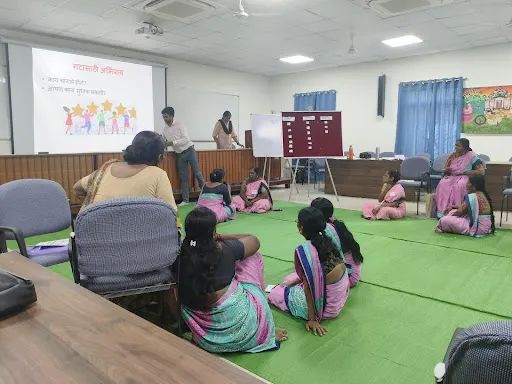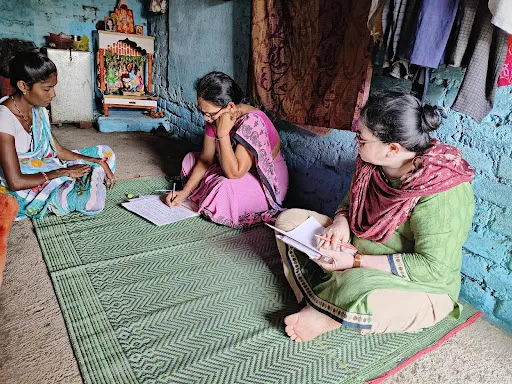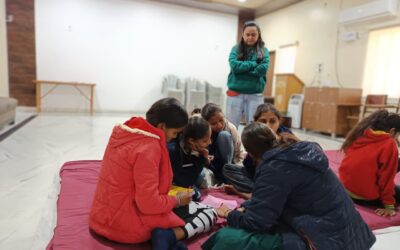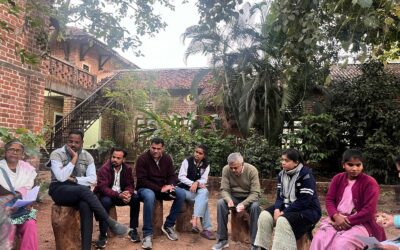The usual pathway to professional recognition in any industry, often focusses on institutional stamp of approval. Many of us would have experienced and worked through such organized structures. This commonly means getting degrees, certifications, and memberships from recognized educational institutions and professional bodies. Essentially, a higher authority endorses your ability by placing their stamp of confidence on your skills. Think of various great personalities in the contemporary era. Many of these eminent people have achieved fame and success post completing formal higher education. However, in my opinion, the rapidly evolving landscape of knowledge dissemination and skill acquisition prompts a critical reassessment of this.
The Traditional Path and its Limitations
Institutional stamp assures employers and the public of an individual’s qualifications and adherence to established professional standards. If you have ever filled your Income Tax returns with the help of a CA, you likely will not appreciate his/her contributions, if he/she was not a registered professional member of the ICAI. Similarly, in early childhood development (ECD), the thematic area i work in as an India Fellow, where the stakes include the well-being and healthy development of babies, such assurances are undeniably crucial.
However, this system is not devoid of limitations. It often entails considerable time and financial investment and can also lag in keeping up with the latest industry advancements and field-level challenges. Such systems may perpetuate socioeconomic disparities by favoring those privileged few with access to resources. Not everyone has the same shot at getting the formal degrees that we think are so ubiquitous. Everyone has different starting points.
Some of us are born into families with money, connections, or better access to education in general. So, they’re already ahead in the game of getting whatever their power can get them. And that’s where the problem kicks in. When only the wealthy can afford these top-notch degrees, it creates this cycle of privilege. They get the best education, which leads to better job opportunities and more money, while others are left behind in this race.
Skill Validation beyond Institutional Endorsement
The spread of digital platforms and the democratization of knowledge have significantly transformed how we acquire skills and hence knowledge. In the current era of technology, online courses, forums, virtual internships, and open-source projects offer diversified avenues for learning. These are more accessible, flexible, and often, more aligned with current work needs compared to traditional education routes. MOOCs (Massive Open Online Courses) come to my mind in these regards.
There are potential question marks on the reliability of many such unregulated courses, a grim reminder on the issue of data authenticity. A regulated and experienced authority providing their stamp of approval in the sense that they have done the hard work of vetting through the sea of misinformation, would be high on the list of confidence validating sources.
However, you have given consent to be fed the knowledge that someone else thinks is good for you. Even with the honest and non-malicious intentions of providing the best possible settings for growth is that the boundaries are fairly well-defined. Instead, what could have been much better was to provide the training to interpret and differentiate between what is truthful facts and what is false narratives. Many institutions are trying to bridge this gap.
A child development professional/pediatrician can analyze data and identify developmental risk factors better and faster. However, with experience working in that specific community, the worker might be better positioned to address those concerns. They might possess exceptional communication skills, cultural sensitivity, and a deep understanding of the community’s specific needs.
Sure, the social worker may initially struggle to provide constructive inputs. Take my current project’s instance, which involves toeing with the technical guidelines of a specific tool in ECD milestones. The social worker is compelled to build more on the theoretical foundation of ECD. However, with a few days of going through the theoretical underpinnings of the developmental milestones and the possible delays that may arise, they are well set in motion to even possibly lead the project in its next iteration.
Exploring Duality of Choice in Early Childhood Development Work
One of the teams at the Department of Community Medicine, Dr. Sushila Nayar School of Public Health, here at MGIMS, Sewagram, in Maharashtra is working currently on a research project entrenched at community level overseeing the effectiveness of a tool in early child development and its scale-up. An able group of 10-15 members currently supports the team. The staff employed in the project are a mixed cohort. Some members having completed formal higher education and others have a social work background without any/with minimal formal training/degree on early child development and its domains.
Maya Tai has completed her MSW with a specialization in family and child welfare and has been part of the current ECD project setup for the last three years. She has mammoth experience spanning 19 years in field-based social work. These involved stints in various welfare-based projects involving farmers, children and young pregnant women. Clearly, she does not possess a formal degree that has any correlation with ECD.
Yet, what is lacking in specialized education, she compensates with her exceptional communication skills and natural ability to establish rapport. Understanding her limitation in technical knowledge, she utilizes her strengths in a way that adds tremendous value to the project. During lunch, I shared this with her. She tried to shift focus to my initial accommodation. On persisting further, she mentions,
मला माझ्या डोमेन ज्ञानाच्या कमतरतेची चांगली ओळख आहे. मूलभूत ज्ञानाची अधिक गरज आहे, ज्यामुळे आम्ही काही जटिल गोष्टी निर्धारित मार्गाने सुलभपणे सुधार करू शकतो. (I am well aware of my lack of specialized knowledge. Good grasp of the fundamentals exponentially increases the effectiveness in addressing complexities associated with the assessment in certain milestones)
However, she quips in quickly with an air of confidence,
तरीही, हे जाणीव असुन्ही , माझ्याकडून चांगल्या संवाद कौशल्यांचा आणि संबंध तयार करण्याच्या माझ्य्या स्वाभाविक क्षमतेचा वापर करून पालकां आणि त्यांच्या कुटुंबांसोबत नातेे जोडताना खूप मदत होतं. (Nevertheless, these gaps do not dissuade me in leveraging my inherent strengths such as good communication skills and rapport building. These are vital skills that can significantly help in mitigating the initial icebreaking with the caregiver and their families)
The tool is designed in such a way that winning over the caregiver’s 100% honest attention and enthusiasm in the interaction is of utmost importance. The questions in the tool require the caregiver to be authentic and able to convey fluently what their present practices and past experiences have been. Building a good rapport thus becomes a significant challenge one has to cross. All the data collected from a disinterested caregiver would be of minimal value because of lack of substance.
Moreover, Maya Tai’s rapport with the families serves as a vital link between the children’s immediate care environment and the project’s objectives. By gaining the trust of the families, she is in a unique position to educate and influence their practices positively. Maya Tai actively seeks out resources and collaborates with experts in ECD, furthermore building connections. She occasionally participates in external workshops and networking opportunities, engaging in discussions with specialists to partake their knowledge with the team and the families, thus bridging the gap in her expertise.
Her adaptability, willingness to learn, and soft skills exemplify how non-traditional competencies can be instrumental in achieving common goals. She has given her all to keep up with relevant skills acquired through non-traditional means. Currently, she is learning data analysis through an online platform. Previously having undergone trainings on health communication through volunteer experiences, and child and maternal health outcomes tracking through community projects, she has demonstrated exemplary performance.


Satish Bhau, another invaluable member of our team, plays a pivotal role in directly engaging with families and children. His approach to communication and understanding is evident when he said, “It’s about listening with empathy and responding with compassion. Each family has its own story and understanding that story is key to providing the support they need.”
Satish Bhau possesses a MA degree with a specialization in Psychology. This background has provided him with a robust theoretical foundation in developmental theories. Additionally, it has given him an understanding of the complex interplay between mental health and developmental processes. Consequently, this theoretical knowledge serves as the backbone of his ability to identify and interact with children at their level. He further added, “For instance, understanding the theoretical underpinnings of attachment theory helps me navigate and provide reassurance during first-time interactions with caregivers, making them feel more at ease and open to collaboration.“
In addition, his keen observation skills have been honed through active listening and genuine interactions. As a result, he can identify signs of developmental delays or issues accurately. He shares his strategy for success in this area, “It’s not just about identifying potential developmental delays or issues but also about understanding the context in which these children are growing. To look beyond the surface and consider the broader psychosocial factors that influence a child’s development is of prime importance.“
Concluding Thoughts
This scenario underscores several critical points. First, it highlights the feasibility of acquiring and validating essential child development skills outside traditional academic and professional frameworks. Second, it illustrates the potential for such individuals to contribute meaningfully and effectively to solving real-world challenges.
Institutional validation plays a vital role in ensuring a strong foundation of knowledge in child development. There are no doubts about its merits. However that being said, the evolving nature of child development challenges and the diverse avenues for skill acquisition necessitate a more inclusive and adaptive approach to validating professional competencies. By exploring and acknowledging the efficacy of non-traditional pathways, organizations/trusts working in the field of public health can not only expand its talent pool but also enhance their responsiveness and effectiveness in addressing relevant issues in current outlook. What matters most in certain scenarios is not the source of one’s skills but their relevance, application, and impact.




0 Comments